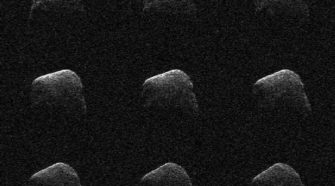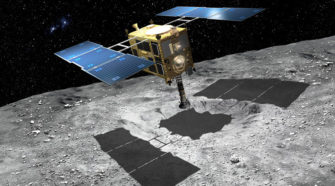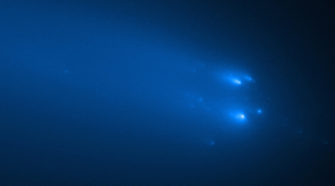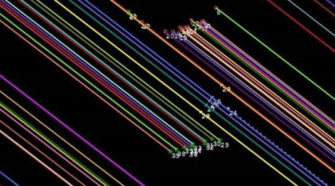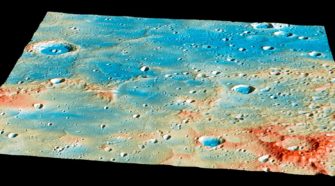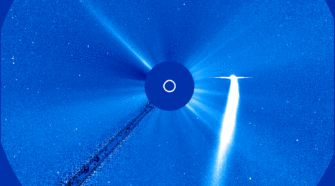Ice and Stone
Special Topic: Close Cometary Encounters
The “Comet of the Week” this week is Comet IRAS-Araki-Alcock 1983d, which passed just 0.031 AU (4.68 million km, or 12.2 lunar distances) from Earth on May 11, 1983 – the closest confirmed cometary approach to Earth during the 20th Century, and the fifth-closest confirmed such approach in all of recorded history. Within this context, …
This Week in History: May 3-9
MAY 3, 1998: Solar scientist Shane Stezelberger discovers a bright comet traversing the northern field of view of the LASCO C3 coronagraph aboard the SOlar and Heliospheric Observatory (SOHO) spacecraft. Comet SOHO C/1998 J1, which passed through perihelion five days later at a heliocentric distance of 0.153 AU and then became a naked-eye object visible …
Comet of the Week: ATLAS C/2019 Y4
Perihelion: 2020 May 31.04, q= 0.251 AU Last year, when I selected the various comets I would be using for “Ice and Stone 2020”’s “Comets of the Week,” I did so with the knowledge – and even hope – that I might find it necessary to swap one or more such selections for current comets …
Special Topic: Occultations by Asteroids
In astronomy, an occultation – which comes from Latin words meaning “to hide” – occurs when one body passes in front of, and thus for a time hides, another body. (In this context, a solar eclipse can be considered as a kind of occultation.) In its most common usage, an occultation usually refers to the …
This Week in History: April 26-May 2
APRIL 26, 1803: A collection of over 3000 meteorites falls and lands near the town of L’Aigle in Normandy, France. Up until then the existence of “stones falling from the sky” had been harshly debated, but the L’Aigle meteorite fall conclusively proved that such events happen, and in effect gave birth to the study of …
Comet of the Week: Bradfield C/2004 F4
Perihelion: 2004 April 17.09, q= 0.168 AU One of the most legendary comet discoverers of the 20th Century was the Australian amateur astronomer William Bradfield, who resided near Adelaide, South Australia. By trade a rocket propulsion engineer with the Australian government until his retirement in 1986, Bradfield began a systematic visual comet hunting effort at …

